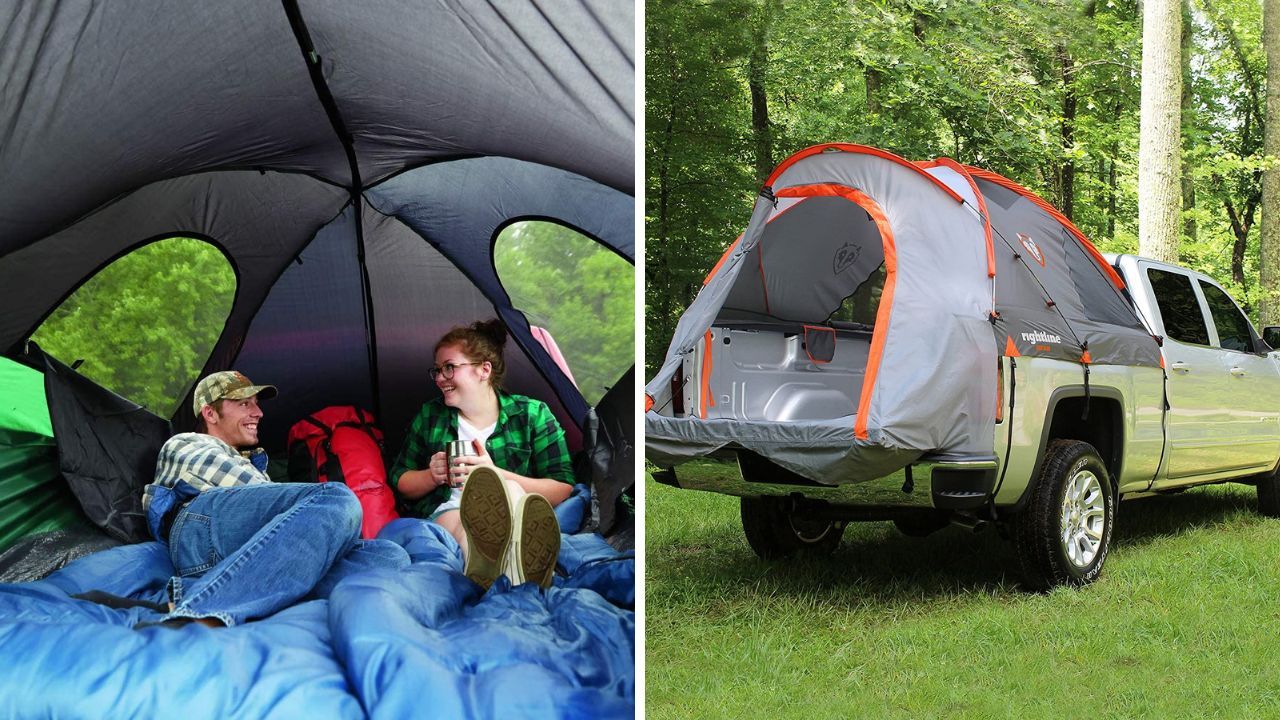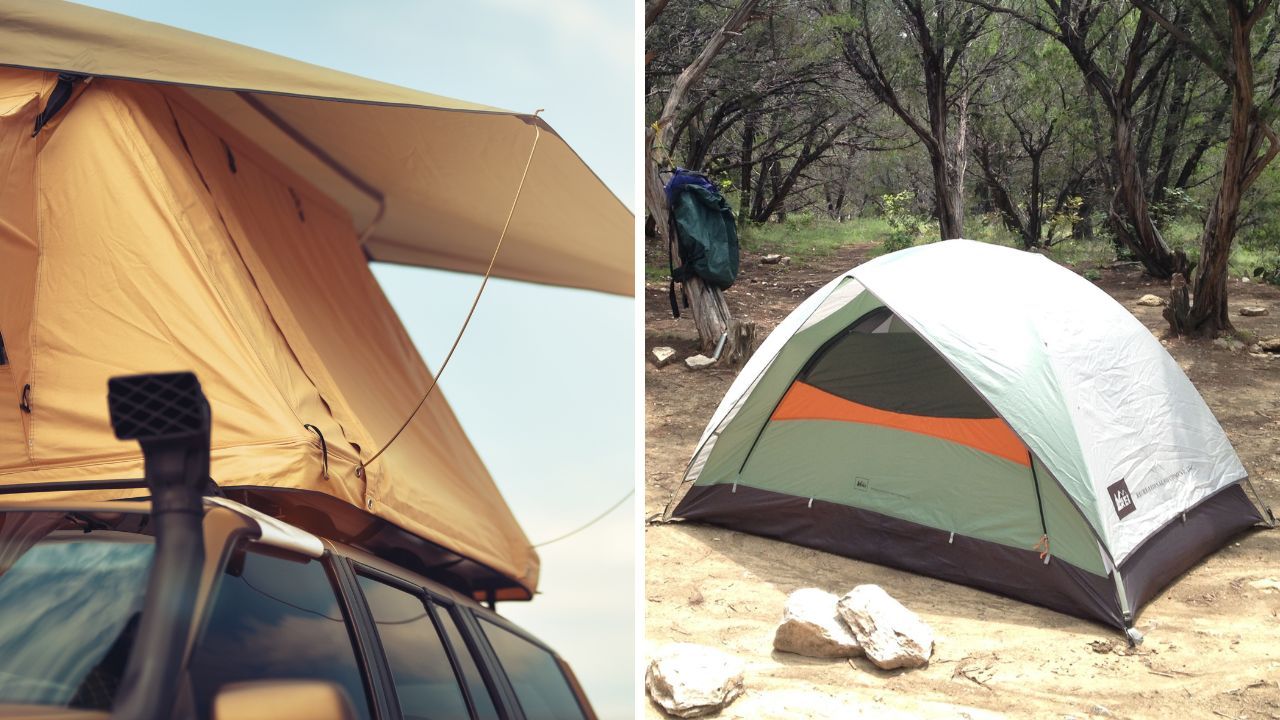
Roof-Top Tent vs Ground Tent | Elevate or Stay Grounded?
Get the rundown on 'Roof-Top Tent vs Ground Tent'. Discover the best fit for your camping needs today!
If you're anything like us, then the call of the wild is one you can't ignore.
But when it comes to camping, the question inevitably arises: ground tent or rooftop tent?
To help you make an informed decision, we're going to take a deep dive into the history, evolution, benefits, and drawbacks of both types of tents.
So buckle up—it's time for a journey through time!
The Dawn of Camping: Ground Tents
Let's start at the beginning, shall we?
Camping is as old as humanity itself.
Our prehistoric ancestors were, after all, nomadic—moving from place to place, setting up temporary shelters.
But it wasn't until the late 19th century that recreational camping, as we know it today, really began to take off.
The Humble Ground Tent
The ground tent was the first form of portable shelter used by campers.
Early models were simple, often made from canvas and held up by wooden poles.

They were heavy, cumbersome, and not particularly weather-resistant. But they served their purpose, providing shelter and a sense of home in the great outdoors.
As technology advanced, so did traditional ground tents. Materials became lighter and more durable. Poles evolved from wood to lightweight metal. Designs became more varied, catering to different needs.
Today, you can find ground tents that are super lightweight for backpacking, larger for family camping, and even models designed specifically for harsh winter conditions.
But while ground tents have certainly come a long way, they aren't without their drawbacks.
They can be time-consuming to set up, especially if you're not familiar with the process. And despite improvements in materials and design, they can still be vulnerable to bad weather.
Plus, let's not forget about the uneven, rocky ground that can make for a restless night's sleep.
The Modern Twist: Roof Top Tents
Now, let's fast forward to the late 20th century. Enter the rooftop tent.
Originally developed in the 1950s for safari expeditions in Africa, rooftop tents offered a solution to some of the problems associated with ground tents.
A New Era in Camping
These tents attach to the roof rack of your vehicle and unfold to create a sleeping area elevated above the ground.
This design was a game-changer. It meant no more sleeping on rocky terrain. It also reduced the risk of encounters with ground-dwelling critters. What's more, being elevated provided a better view of the surroundings—a major plus for nature lovers.
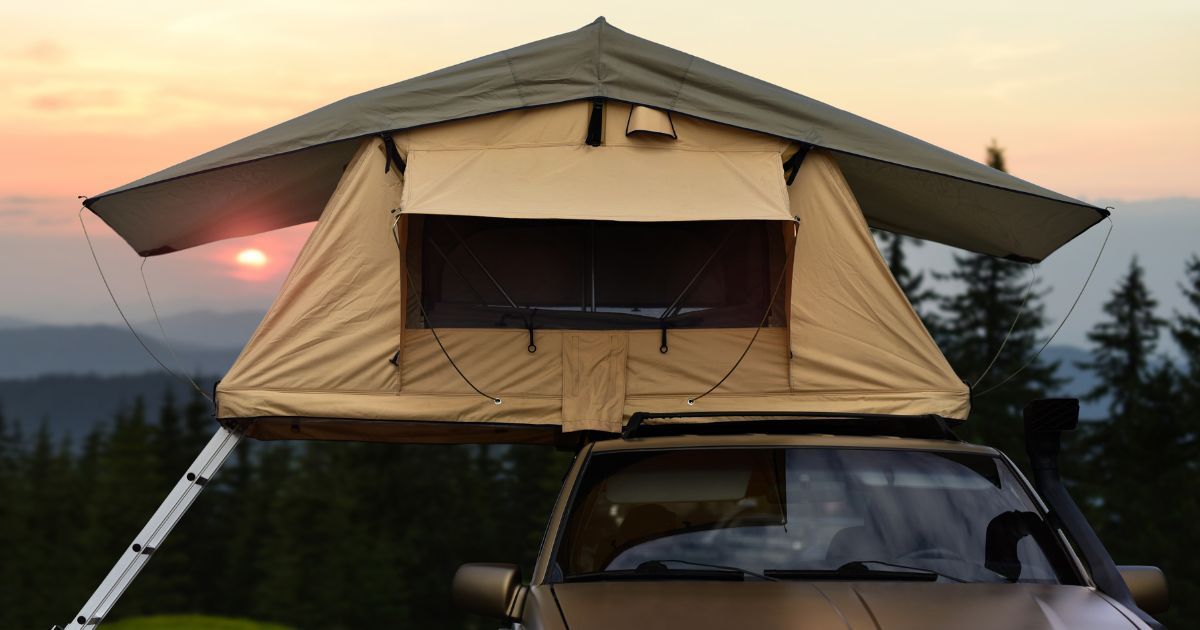
As with ground tents, rooftop tents have also seen significant technological advancements.
Modern models are easy to set up, often just requiring you to unfold them and secure a few straps. They're made with durable, weather-resistant materials, and most have built-in mattresses for added comfort.
But, like everything else, rooftop tents aren't perfect.
They're generally more expensive than ground tents, and not all vehicles are suitable for mounting them. They usually start around $1,000, not including the roof rack to attach the tent to.
Plus, once set up, they limit the mobility of your vehicle.
Ground Tent vs Roof Top Tent: A Comparative Look Through History
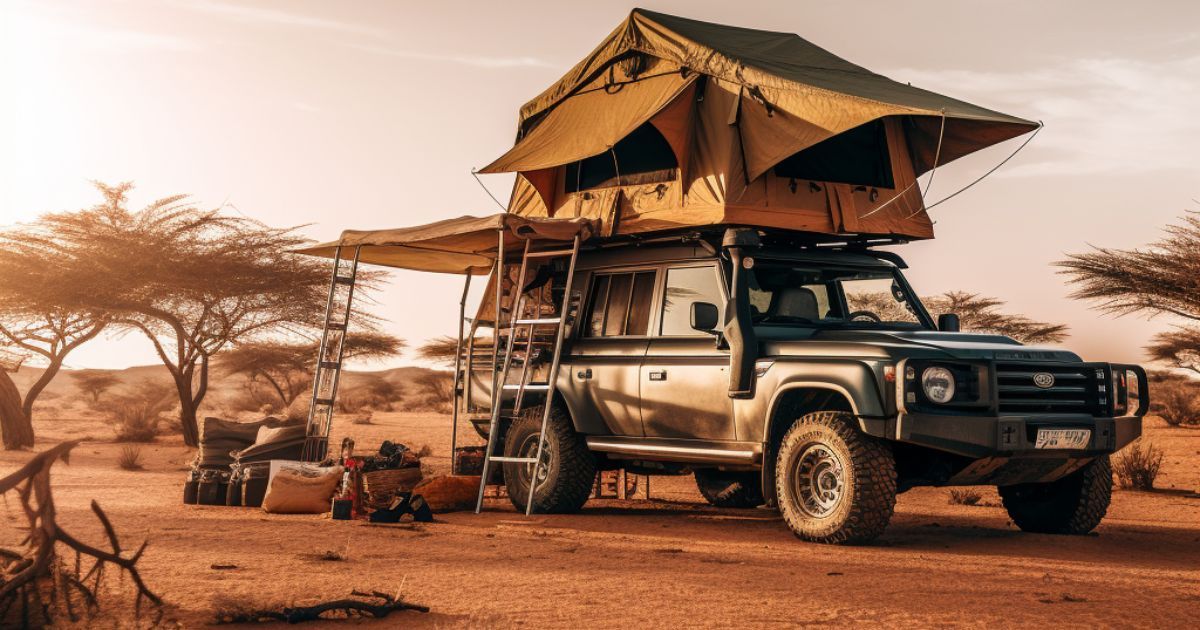
As we've seen, both ground tents and rooftop tents have their own unique histories.
For a long time, the ground tent was the go-to choice for campers. It was the only option available, and despite its drawbacks, it offered a sense of adventure that many found irresistible.
But as rooftop tents entered the scene, things started to shift. These tents offered a new level of comfort and convenience that was hard to ignore.
While they were initially used mainly for safari expeditions, their popularity has surged in recent years, particularly among overlanders and people who value the ability to set up camp quickly and easily.
The shift from ground tents to rooftop tents has been influenced by several factors.
Technological advancements, for one, have made rooftop tents more accessible and user-friendly.
Changes in camping trends and preferences have also played a role.
As more and more people seek out off-the-beaten-path camping experiences, the appeal of a tent that can be set up anywhere your vehicle can go is undeniable.
Key Features Comparison: Roof Top Tent vs Ground Tent
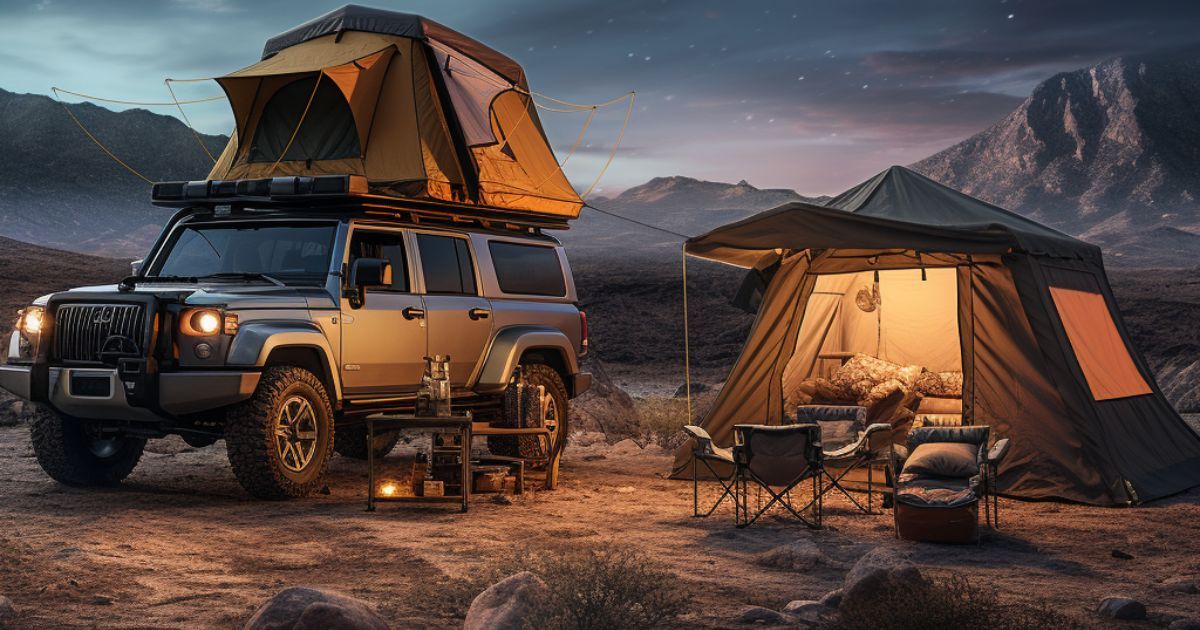
Comparing the key features of rooftop tents and ground tents can help you make an informed decision based on your specific needs. Let's take a closer look:
1. Setup Time:
- Rooftop Tent: One major advantage of rooftop tents is their quick setup time. Once you park your car, it takes just a few minutes to unfold and secure the tent, and you're ready for a comfortable night's sleep.
- Ground Tent: Ground tents require more time and effort to set up. You need to find a flat surface, assemble the poles, stake the tent into the ground, roll out your sleeping bags, and inflate your sleeping pad or air mattress.
2. Comfort:
- Rooftop Tent: These tents often come with built-in mattresses, providing an elevated and comfortable sleeping platform. They also offer protection from ground moisture and crawling insects. Furthermore, it's worth noting that rooftop tent mattresses can be upgraded to memory foam for added comfort and support.
- Ground Tent: While ground tents can be comfortable, much depends on the sleeping pad you use. You might also have to contend with uneven terrain, rocks, and bugs.
3. Size and Space:
- Rooftop Tent: Roof top tents are compact and perfect for 2-3 people, but they offer limited space. You'll also need to consider the weight capacity of your vehicle's roof rack.
- Ground Tent: Ground tents are available in a variety of sizes, accommodating anywhere from one person to a large family. They also typically provide more headroom and living space.
4. Durability and Weather Resistance:
- Rooftop Tent: Roof top tents are generally more durable and weather-resistant. They're designed to withstand wind and rain, and their elevated position can keep you dry even in a downpour. Rooftop tent manufacturers have the freedom to use heavier and sturdier materials. This is because the weight is not a concern for you to bear, but rather the responsibility of your vehicle to carry.
- Ground Tent: The durability of ground tents varies widely based on their quality. High-end models can be very resilient and weather-resistant, but cheaper ones might not hold up as well in adverse conditions.
5. Portability:
- Rooftop Tent: Rooftop tents stay attached to your vehicle, making them less portable if you want to explore without your car.
- Ground Tent: Ground tents are highly portable. You can pack them in a backpack and set up camp almost anywhere. If you want to go exploring and need your vehicle you don't need to pack up your tent.
6. Versatility:
- Rooftop Tent: Rooftop tents only work if you have a vehicle that is suitable for mounting them. That said, they can be used on cars, vans, SUVs and even trucks — making them relatively versatile.
- Ground Tent: A lightweight ground tent serves a multitude of purposes, making it a versatile choice for car camping, bicycle touring, motorcycle touring, hiking, hunting, travel, and beyond. What's more, you don't necessarily need a vehicle to enjoy its benefits. Feel free to use it with any vehicle or switch between vehicles effortlessly—compatibility issues are not a concern when it comes to utilizing a ground tent.
How History Has Shaped Our Tent Preferences
To truly understand the impact of the evolution of tents on camping experiences, let's look at some real-life examples.
Consider the story of the Lewis and Clark expedition.

Their journey across the American wilderness in the early 1800s was made possible in part by the use of canvas tents. These provided shelter and a sense of home in the wild, despite their simplicity and the hardships of the journey.
Fast forward to today, and you'll find stories like that of the modern Overlander.
These adventurers traverse rugged landscapes in their vehicles, setting up camp wherever they end their day. For them, the convenience, comfort, and mobility of a rooftop tent are invaluable.
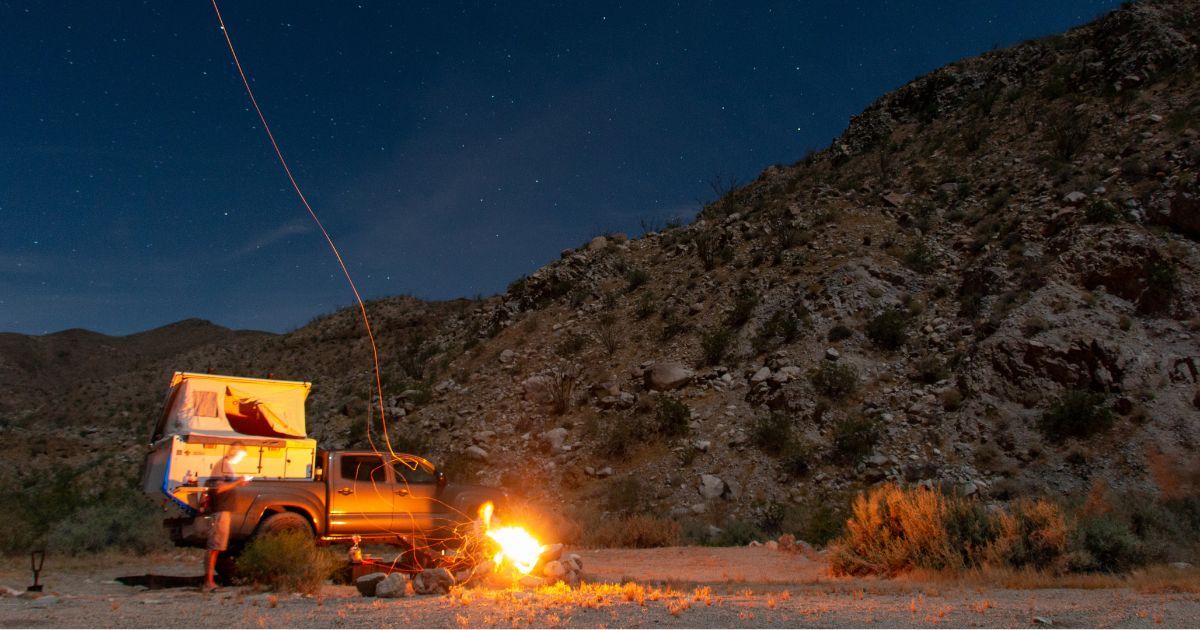
These two scenarios illustrate how our camping preferences have evolved over time, shaped by changes in technology, societal trends, and our own personal desires for comfort and adventure.
The Future of Camping: Predictions Based on Historical Trends
Looking ahead, what might the future of camping hold?
If history is any guide, we can expect that technological advancements and changing preferences will continue to shape the evolution of tents.
For one, we're likely to see continued improvements in materials and design.
Tents might become lighter yet stronger, more weather-resistant, and even easier to set up. We could also see more eco-friendly options as sustainability becomes a bigger focus in product development.
As for rooftop tents, their popularity is likely to continue to grow.
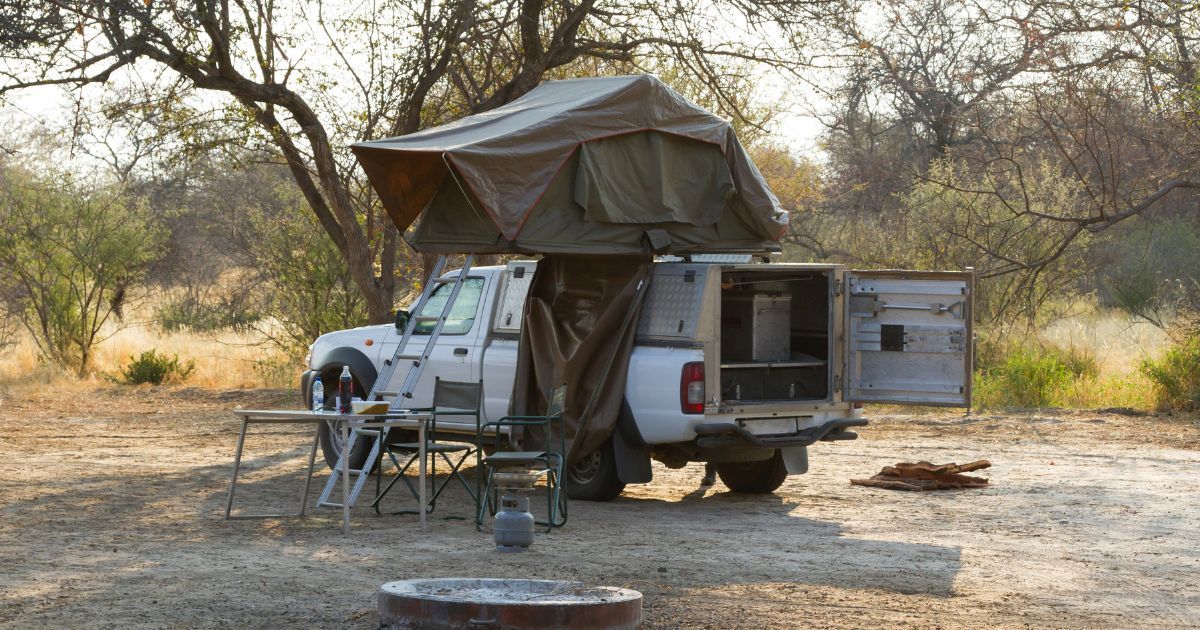
We might see more features aimed at enhancing comfort and convenience, such as integrated solar panels for powering your devices or even built-in Wi-Fi for those who want to stay connected while in the wild.
But remember, these are just speculations. The future, as they say, is unwritten!
How to Choose: Weighing Your Options
Selecting the right tent for your camping adventures can seem like a daunting task with so many options available.
However, when you know what to consider, the process becomes significantly easier.

Let's delve deeper into the factors that can guide you in choosing between a ground tent and a rooftop tent:
- Budget: Your financial plan is an essential factor. Rooftop tents generally are more costly than your average ground tent due to their advanced features, such as elevated sleeping areas and built-in mattresses. If budget isn't a major concern for you, a rooftop tent could be a great option. However, if you're working with a tighter budget, a ground tent would be a more economical choice.
- Vehicle Compatibility: Before considering a rooftop tent, ensure your vehicle can accommodate it. Not all vehicles are suitable for mounting a rooftop tent due to weight restrictions or lack of roof racks. Check your vehicle’s manual or consult with a professional to avoid any compatibility issues. There have been numerous accounts of roof racks failing, particularly when engaging in off-roading activities with a rooftop tent.
- Camping Style: Your style of camping plays a significant role in your choice. If you're the type of camper who likes to stay in one spot for several days, a ground tent would be ideal since it provides more space and stability. On the other hand, if you enjoy moving from place to place, a rooftop tent would be more convenient as it's easy to pack up and set up.
- Comfort Preferences: Comfort is subjective and varies from person to person. Some people don't mind sleeping on the ground and actually enjoy it, making a ground tent a perfect fit. Others prefer the comfort and elevation provided by a rooftop tent. Consider what you value most in your sleeping arrangements before making a decision.
- Frequency of Use: How often you camp can also influence your decision. If you're a frequent camper, investing in a durable and easy-to-set-up rooftop tent might be worth the cost. But if you only camp occasionally, a ground tent could be sufficient.
- Weather Conditions: The climate and weather conditions where you plan to camp are also worth considering. Roof-top tents tend to have excellent resistance to elements like wind and rain, making them a good choice for camping in harsh conditions. But it can be difficult to shield yourself from wind in a rooftop tent being so high off the ground. Ground tents can also withstand varying weather conditions, but make sure they're well-made and come with a quality rainfly.
Before You Go...
